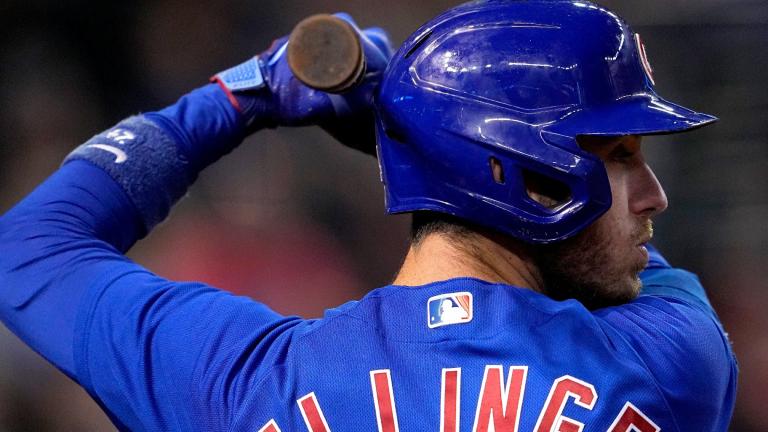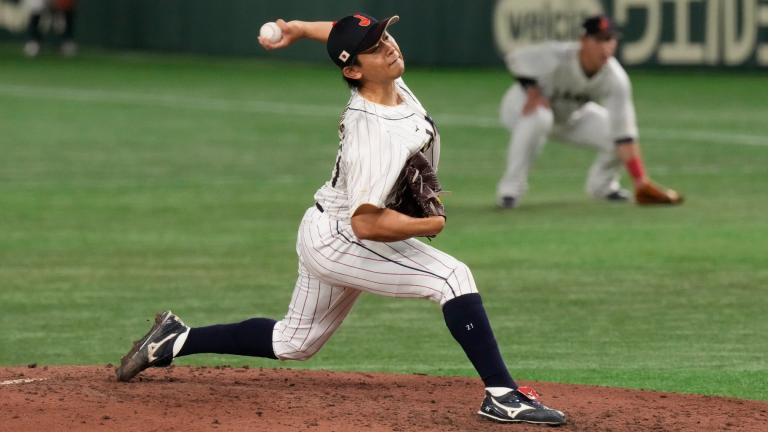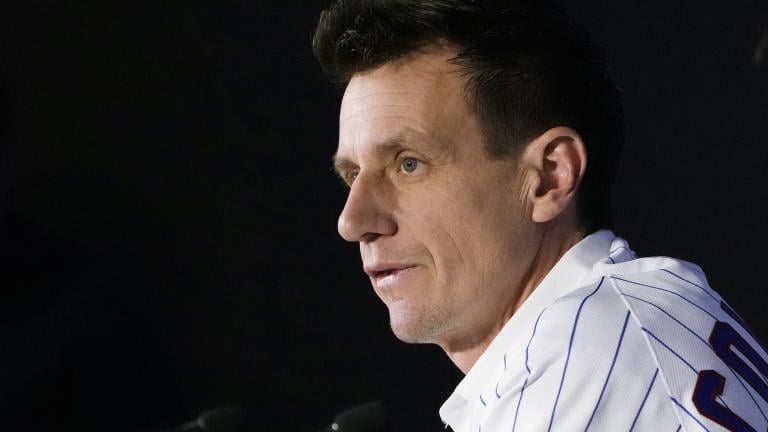The two biggest stories in sports news lately have been the Chicago Cubs and the controversy over online fantasy sports.
If you're a Cubs fan, you know that it has been virtually impossible to buy playoff tickets through the Cubs lottery. A million people signed up for about 2,000 seats. As a result, buyers are flooding the secondary market and paying $600—and in some cases much more—per ticket. Who benefits from online sales and is the system stacked against the average fan?
If you've been watching the Cubs or Bears, you've probably seen the huge number of online fantasy sports sites advertised. But two of the biggest ones, Fan Duel and Draft Kings are under investigation. So what exactly is fantasy sports—is it gambling and should it be banned or regulated?
Joining us to discuss these topics and more are Northwestern University managerial economics and decision sciences professor and co-creater of the school's "Purple Pricing" ticket auction system Sandeep Baliga; Crain's Chicago Business sports business reporter Danny Ecker; and Todd Heyden, Chicago-based fantasy sports app maker SportsLock co-founder.
Cubs secondary ticket sales break the bank
With Cubs fever taking over as the team makes a deeper run in the MLB playoffs, fans are digging deeper into their pockets to scoop up tickets for playoff games from the secondary ticket market.
According to the online ticket resale marketplace SeatGeek.com, tickets for the Cubs’ NLDS series last week at Wrigley Field against the St. Louis Cardinals were the most expensive tickets for any MLB divisional playoff games since 2010, and a recent SeatGeek study cited in Crain’s showed that ticket averages increased astronomically for the Cubs’ NLCS Wrigley games this week against the New York Mets.
However, after losing to the Mets twice in New York this past weekend, ticket prices as of Monday have actually lost a bit of luster heading into the three-game home stand.
The Crain’s chart below illustrates ticket prices as of Monday for Games 3, 4 and, potentially, Game 5 at Wrigley:
Do online fantasy sports sites break the law?
Millions of people play and contribute to the multibillion-dollar fantasy sports market, including teenagers. Some participants join leagues with friends while others join public leagues against strangers.
How do these games work?
While there are several different types of leagues that vary by sport, the two biggest types of fantasy industries include traditional fantasy sports leagues and daily fantasy sports leagues (DFS).
 In general, traditional fantasy sports leagues, such as ESPN and Yahoo leagues, are season-long leagues where participants, or team owners, will select their team of real-life professional athletes virtually through an online selection process, which is also known as a draft. The team then competes based on the real-game statistics of the team’s athletes, which are converted into points and tallied for the team’s overall score. For each competition, the owner will choose a roster, using various websites and mobile apps to decide which athletes on the team get to be in the starting lineup and which players sit on the bench. League participants will often contribute money into a pool at the beginning of the season with prizes awarded to the league’s top performers at the season’s end.
In general, traditional fantasy sports leagues, such as ESPN and Yahoo leagues, are season-long leagues where participants, or team owners, will select their team of real-life professional athletes virtually through an online selection process, which is also known as a draft. The team then competes based on the real-game statistics of the team’s athletes, which are converted into points and tallied for the team’s overall score. For each competition, the owner will choose a roster, using various websites and mobile apps to decide which athletes on the team get to be in the starting lineup and which players sit on the bench. League participants will often contribute money into a pool at the beginning of the season with prizes awarded to the league’s top performers at the season’s end.
Daily fantasy sports leagues (DFS), including FanDuel and DraftKings, offer a greater potential for profitability than traditional fantasy sports leagues. DFS participants select their athletes each day—or each week for fantasy football—and the athletes (unlike traditional fantasy sports leagues) are chosen through online auctions based on the individual values of the athletes, with the potential for large daily or weekly cash prizes.
Skill vs. chance
Despite what may seem like a gray area between online entertainment and online gambling, fantasy sports are legal under the Unlawful Internet Gambling Enforcement Act that Congress passed in 2006. The legislation banned all forms of online sports gambling but left a federal loophole for fantasy sports by declaring fantasy sports as a game of “skill” versus a game of “chance.” The catch is that the fantasy users are not allowed to bet on the outcome of a single game or the single performance of an athlete.
Following a recent cheating scandal involving FanDuel and DraftKings, regulating fantasy sports sites has become a hot-button issue nationwide: New York Attorney General Eric Schneiderman opened an inquiry into the sites’ questionable activities; Nevada regulators said that the sites needed a gambling license to operate in the state and ordered the sites to shut down; and the Illinois Gaming Board has announced plans to seek a legal opinion from Attorney General Lisa Madigan on whether daily fantasy sports sites like FanDuel and DraftKings violate state law.
In Illinois, Internet gambling is illegal. The law states that, “A person commits gambling when he or she establishes, maintains, or operates an Internet site that permits a person to play a game of chance or skill for money or other thing of value by means of the Internet.”








